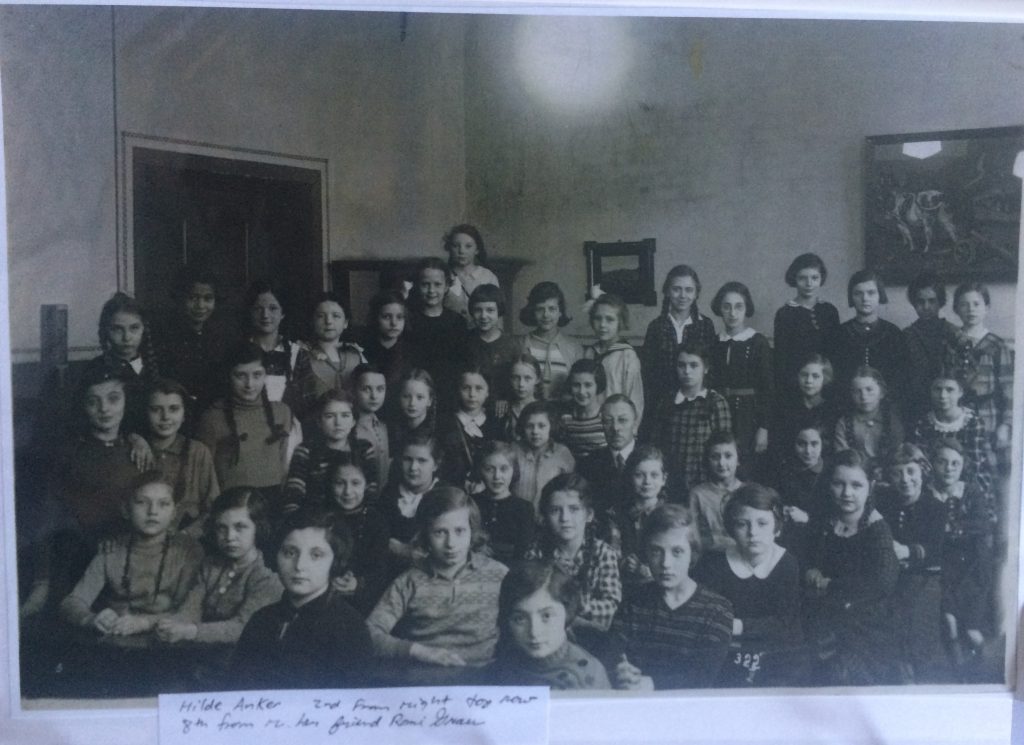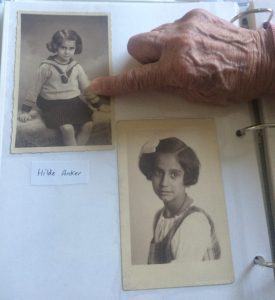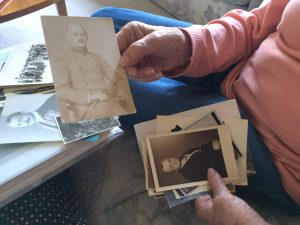Hilda Fogelson is one of the thousands of children who escaped Nazi-occupied areas through the Kindertransport, a rescue effort to save Jewish children before World War II. Fogelson was 13 at the time.
Before Hitler came into power, she remembers having a “very good life.”
“I went to school until I had to leave,” says Fogelson.

But Kristallnacht, or the “Night of Broken Glass,” changed everything.
On November 9, 1938, a series of violent riots spread through Germany and other occupied areas. Rioters attacked and tried to destroy Jewish homes, businesses, and synagogues.
The day after the destruction, Fogelson’s father took her and her older sister to downtown Berlin so they would remember the day forever.
“All the windows were smashed and it was written in German ‘Jude,’ but means Jew,” Fogelson remembers.
After Kristallnacht, Fogelson’s father realized that it was no longer safe to stay in Germany. He paid to get Fogelson and her two older sisters sent on the Kindertransport to Great Britain, where they lived with their uncle. Fogelson did not know if she would ever see her parents again. Many Kindertransport survivors were the only ones to get out before their families were killed in the Holocaust.

For Fogelson, it would be a year before she would reunite with her parents again. They were able to make it out of Germany and into Britain.
The family made the voyage across the Atlantic and landed in Boston, where they took a Greyhound bus across the country to Los Angeles, where they had family.
“My father said, ‘We’re not going to any hotels, we’re just going to keep going. You’re going to sleep on the bus,'” Fogelson says. “I saw the United States, but it was a pretty horrible journey.”

Upon arriving at in downtown L.A., Fogelson was immediately struck by the racial diversity.
“I had never really seen a black person before, you know,” she says. “I’m sure they were somewhere in England, but not where we were.”
Fogelson says she’d only been around German and English people until that point.
“It was, you know, something amazing for me to see different people,” she says.
Fogelson’s father ended up selling his favorite photography equipment in order to buy a chicken farm in Van Nuys, so that the family could thrive in Los Angeles.
Fogelson is 90 today, now with her own children and grandchildren. She speaks at local schools and events so that the Kindertransport and her journey to the United States is never forgotten.